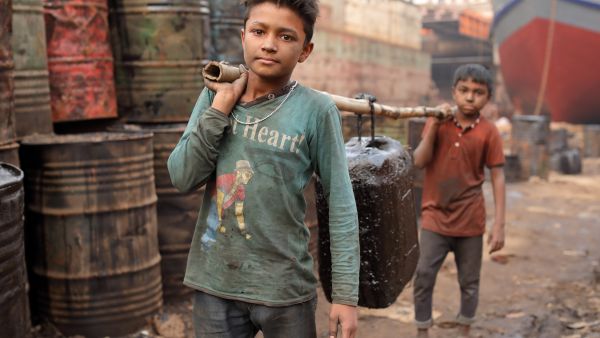Celebrating the World Day Against Child Labour this year was a little too gloomy compared to the last few years, as the on-going pandemic continues to threaten the world with one of the most severe economic crises in modern history.
Millions of children around the world are at risk of being pushed into child labor due to the coronavirus crisis, the International Labour Organization and UNICEF warn. https://t.co/fnE7Fq025V
— NBC News World (@NBCNewsWorld) June 12, 2020
Despite promising accomplishments achieved over the last 20 years in terms of child labour, international organizations are now warning of a new spike that might be hard to control, especially as the world stands still watching the economic crisis still in the making.
In a 2019 report, the International Labour Organization ILO hoped that the right kind of work and commitment will result in an elimination of this socioeconomic phenomenon by 2025.
According to the report, child labour numbers declined by 94% since 2000, nearing 152 million children; 88 million males and 64 million females, which meant that 1 in each 10 children worldwide performs some kind of work, whether it's paid or not. 4.3% of these children are feared to be forced to work.
Even though 71% of child labour is recorded in the agricultural sector, 73% of children workers reported being employed in "hazardous environments, endangering their health, safety, or moral development," ILO notes.
During the Coronavirus pandemic and the economic crisis it has unleashed worldwide, additional millions of children are expected to be exploited during the next few months and even years, as child labour has for long been a coping mechanism for families struggling to make ends meet.
According to the World Bank, the world is expected to see its greatest economic meltdown in seven decades and millions of people might be pushed into poverty if not extreme poverty.
Child labour has always been associated with low wages made by adult workers, forcing them into prioritizing work for each family member so as to afford minimum everyday needs.
Additionally, unequal educational opportunities have pressured many unprivileged families to put their kids' efforts into daily activities that would allow for a better income.
Moreover, the lack of legal protection of the most vulnerable segments of society has enabled supply chains, looking to employ the biggest number of workers for as little money as possible, to exploit children.
Therefore, international organizations focused on both children's rights and labour issues are warning of a sudden failure of all years-long efforts that aimed to end this phenomenon. They also called on governments and stakeholders to take serious action that could protect as many children as possible.
World Bank warns 60 million at risk of 'extreme poverty' from global economic slump. https://t.co/jVKRhVrMbZ
— Adam Creighton (@Adam_Creighton) May 20, 2020
In addition to drafting and implementing laws and policies that grant adult workers access to decent pay, both governments and NGOs are recommended to invest in free and high-quality schooling that includes all children, for education can be the only alternative to child employment.
Governments are also strongly encouraged to not only issue laws that make primary and secondary education mandatory, but to also ensure full implementation, through social protection programs in cooperation with other sectors.
They should also address the issue on a social level to highlight the long-term dangers of child labour and to raise awareness of how only an educated child can build a more stable and decent future.







